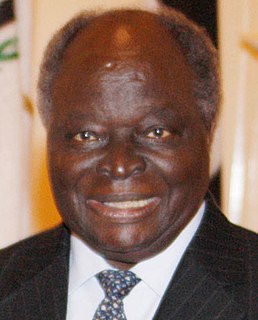A Quote by Hugo Black
The public welfare demands that constitutional cases must be decided according to the terms of the Constitution itself, and not according to judges views of fairness, reasonableness, or justice. I have no fear of constitutional amendments properly adopted, but I do fear the rewriting of the Constitution by judges under the guise of interpretation.
Quote Topics
Related Quotes
Of course, such judicial misconstruction theoretically can be cured by constitutional amendment. But the period of gestation of a constitutional amendment, or of any law reform, is reckoned in decades usually; in years, at least. And, after all, as the Court itself asserted in overruling the minimum-wage cases, it may not be the Constitution that was at fault.
If it be said that the legislative body are themselves the constitutional judges of their own powers, and that the construction they put upon them is conclusive upon the other departments, it may be answered, that this cannot be the natural presumption, where it is not be collected from any particular provisions in the Constitution.
The first ten amendments were proposed and adopted largely because of fear that Government might unduly interfere with prized individual liberties. The people wanted and demanded a Bill of Rights written into their Constitution. The amendments embodying the Bill of Rights were intended to curb all branches of the Federal Government in the fields touched by the amendments-Legislative, Executive, and Judicial.
It is said that the fear of public speaking is a fear greater than death for most people. According to psychiatrists, the fear of public speaking is caused by the fear of ostracism, the fear of standing out, the fear of criticism, the fear of ridicule, the fear of being an outcast. THE FEAR OF BEING DIFFERENT PREVENTS MOST PEOPLE FROM SEEKING NEW WAYS TO SOLVE THEIR PROBLEMS.
Much of the Constitution is remarkably simple and straightforward - certainly as compared to the convoluted reasoning of judges and law professors discussing what is called 'Constitutional law,' much of which has no basis in that document....The real question [for judicial nominees] is whether that nominee will follow the law or succumb to the lure of 'a living constitution,' 'evolving standards' and other lofty words meaning judicial power to reshape the law to suit their own personal preferences.
Constitutions are violated, and it would be absurd to expect the federal government to enforce the Constitution against itself. If the very federal judges the Constitution was partly intended to restrain were the ones exclusively charged with enforcing it, then "America possesses only the effigy of a Constitution." The states, the very constituents of the Union, had to do the enforcing.































